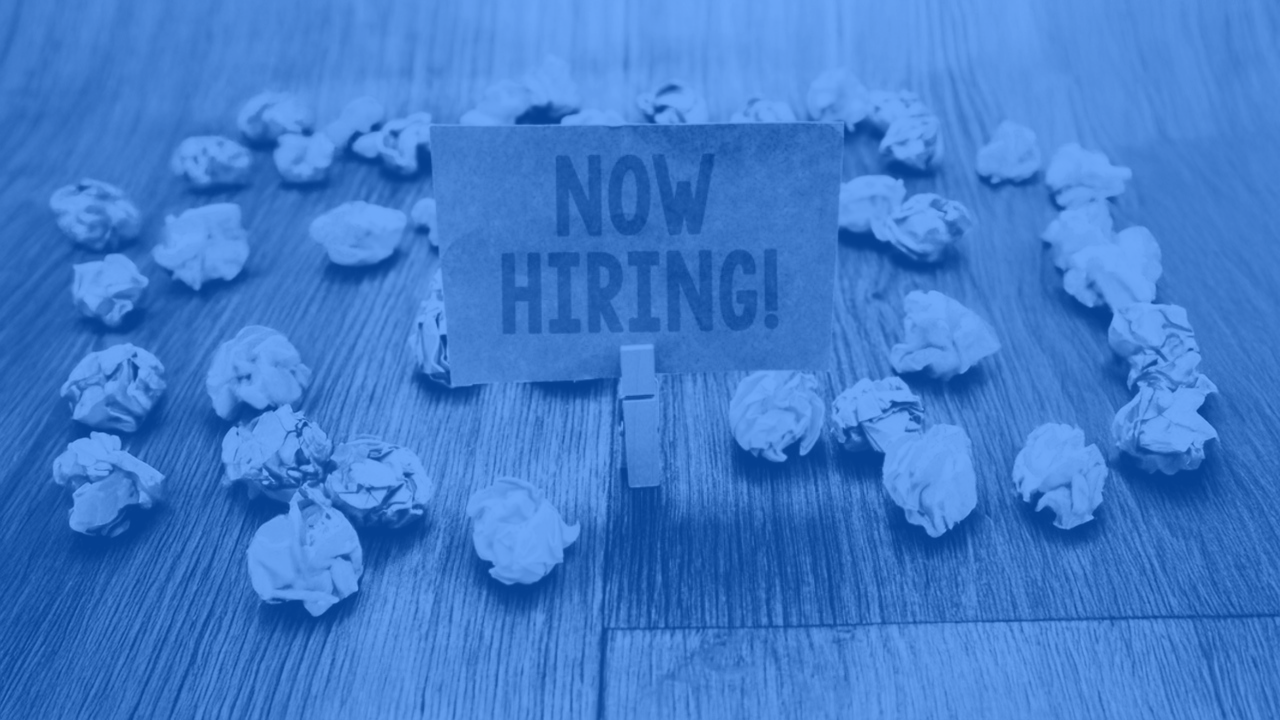In tech hiring, strong coding skills might get someone through the door, but it’s their soft skills that determine how well they collaborate, adapt, and navigate real-world challenges. Communication, emotional intelligence, and the ability to work as part of a team are just as important as technical knowledge.
Still, evaluating these qualities during interviews can be tricky. This article offers 10 practical tips to help you assess soft skills with more clarity and confidence, so you can make well-rounded hires who are ready to thrive in dynamic, fast-paced environments.
Understanding the Role of Communication
“Effective communication can make the difference between a project’s success and failure.”
In the tech industry, communication is a vital soft skill that ensures clarity, collaboration, and efficiency. Developers need to articulate complex ideas, collaborate with cross-functional teams, and convey updates effectively. Without strong communication, even the most technically skilled employees may struggle to contribute to team goals.
To evaluate communication skills during interviews, consider employing techniques such as role-playing exercises, situational judgement tests, and open-ended questions. These approaches can provide insights into a candidate’s ability to express thoughts clearly and listen actively.
- Can you describe a time when a misunderstanding occurred on your team and how you resolved it?
- How do you ensure that your technical explanations are understood by non-technical team members?
- Tell me about a successful presentation you gave and what made it effective.
These targeted questions not only assess verbal communication but also reveal a candidate’s listening and problem-solving capabilities, which are equally important in tech roles.
Assessing Adaptability and Problem-Solving
In today’s fast-paced tech industry, 80% of employers consider adaptability a crucial soft skill for success. As technologies evolve, so must the people working with them. Adaptability ensures that developers can keep up with new tools, methodologies, and unexpected challenges.
To effectively gauge problem-solving abilities, interviewers should present candidates with real-world scenarios that require quick thinking and flexibility. Techniques like case studies and situational judgement tests can reveal how a candidate approaches unforeseen issues and adapts their strategies accordingly.
| Adaptability Trait | Description |
|---|---|
| Open-mindedness | Willingness to consider new ideas and approaches. |
| Resilience | Ability to recover quickly from setbacks. |
| Proactivity | Takes initiative to anticipate and address challenges. |
Sample scenarios for adaptability testing could include reacting to a sudden change in project scope or navigating a software bug under tight deadlines. By focusing on these traits and scenarios, recruiters can identify candidates who thrive in dynamic environments.
Evaluating Emotional Intelligence
Emotional intelligence (EI) refers to the ability to understand and manage one’s own emotions, as well as recognize and influence the emotions of others. In the tech industry, where collaboration and innovation are key, EI plays a critical role in fostering effective team dynamics and creating a positive workplace environment.
Indicators of high emotional intelligence include empathy, self-regulation, and social skills. A developer with strong EI can navigate interpersonal conflicts, display resilience in stressful situations, and communicate effectively with team members.
When assessing emotional intelligence during interviews, consider asking questions like:
- Can you describe a time when you had to manage a difficult emotion at work?
- How do you handle feedback from peers or supervisors?
- Tell us about a situation where you had to empathize with a colleague’s perspective.
These questions encourage candidates to reflect on their past experiences, providing insights into their emotional awareness and interpersonal skills. By focusing on emotional intelligence, recruiters can identify candidates who will not only excel in technical tasks but also contribute positively to team culture.
Identifying Teamwork and Collaboration
According to a study by the Institute for Corporate Productivity, companies that promote collaborative working are five times as likely to be high-performing. In the tech industry, teamwork is crucial, as projects often require diverse skill sets and collaborative problem-solving.
To evaluate collaboration skills, consider using behavioral interviews and group exercises. Behavioral interview techniques can reveal how candidates have approached teamwork in the past, while group exercises can provide real-time insights into a candidate’s ability to work with others.
Here are some questions to help uncover teamwork skills:
- Describe a successful project where you worked as part of a team. What was your role?
- How do you handle conflicts within a team?
- Can you give an example of a time when you had to collaborate with someone with a different working style?
These questions aim to elicit responses that showcase a candidate’s ability to collaborate effectively, communicate openly, and navigate team dynamics. Through thoughtful evaluation, recruiters can identify candidates who are not just technically proficient, but also able to contribute positively to team objectives. For more insights on building a high-performing workforce, visit HR Oasis.
Measuring Creativity and Innovation
“In the world of tech, creativity is not just a skill, but a critical element that drives innovation and problem-solving.” This quote encapsulates the importance of creativity in the tech industry, where developing new solutions and improving existing systems is vital for staying competitive.
Creativity and innovation fuel advancements in technology, enabling companies to create unique products and services. Therefore, it’s essential to identify candidates who can think outside the box. One technique to encourage creative thinking is to present candidates with hypothetical scenarios that require innovative solutions. This approach allows you to observe their thought processes and ability to generate novel ideas.
To assess innovation, consider asking candidates to share past experiences where they introduced a new idea or improved a process. Questions like “Can you describe a time when you had to think creatively to solve a problem?” or “What innovative solution have you contributed to a past project?” can reveal their capacity for innovation. Through these methods, recruiters can discern candidates who not only meet technical requirements but also bring a creative edge to the team.
FAQs on Soft Skills Assessment
As you explore how to assess soft skills in tech, you may have some common questions. Here’s a concise guide to clarify your approach:
- What are the key soft skills to assess in tech roles? While technical expertise is vital, focusing on communication, teamwork, adaptability, and emotional intelligence is essential for successful hires.
- How can I effectively evaluate these skills during interviews? Utilize behavior-based questions and role-playing scenarios. These techniques reveal a candidate’s real-world application of soft skills. For more details, visit our guide on the hiring stages.
- Where can I find additional resources for HR professionals? The HR Oasis blog and platforms like LinkedIn Learning provide extensive resources to enhance your soft skills assessment strategies. Explore more at the HR Oasis Blog.
With these insights and resources, you are now equipped to conduct thorough soft skills assessments that complement technical evaluations in tech interviews.
Conclusion
In today’s tech landscape, soft skills are as critical as technical prowess. Throughout this article, we’ve explored techniques for evaluating communication, adaptability, emotional intelligence, teamwork, and creativity. These skills ensure developers not only fit into your team but also drive innovation and collaboration. Implementing these strategies will enhance your hiring process, leading to more well-rounded tech professionals. We encourage HR professionals to integrate these methods, transforming your recruitment approach and securing the best talent for your organization.
Ready to Elevate Your Hiring Process?
Don’t leave your next tech hire to chance! Implement these strategies for assessing soft skills and ensure you find candidates who are not only technically proficient but also excel in communication, adaptability, and teamwork.
Take the first step towards building a high-performing team today!
Contact Us for Expert Hiring Solutions
Key Takeaways
- Importance of Soft Skills: Understand why soft skills like communication, adaptability, emotional intelligence, teamwork, and creativity are essential in the tech industry.
- Effective Assessment Techniques: Learn actionable methods for evaluating soft skills during interviews, including role-playing, situational judgement tests, and behavioral questions.
- Real-World Scenarios: Discover how to present candidates with real-world challenges to assess their problem-solving abilities and adaptability.
- Emotional Intelligence Insights: Gain insights into evaluating emotional intelligence and its impact on team dynamics and workplace culture.
- Collaborative Skills Evaluation: Identify effective strategies for assessing teamwork and collaboration skills through group exercises and targeted interview questions.
- Creativity and Innovation: Learn how to measure a candidate’s creativity and ability to innovate, which are crucial for driving technological advancements.
- Resources for Continuous Learning: Access additional resources and guides to enhance your soft skills assessment strategies and improve your hiring process.




